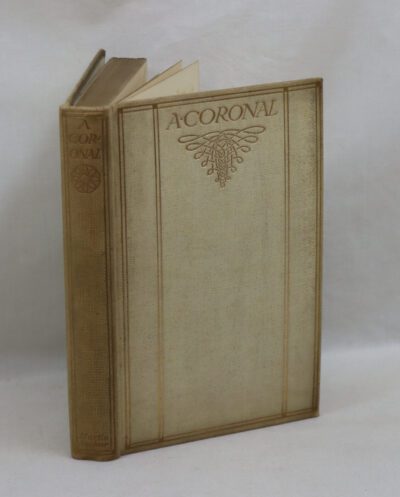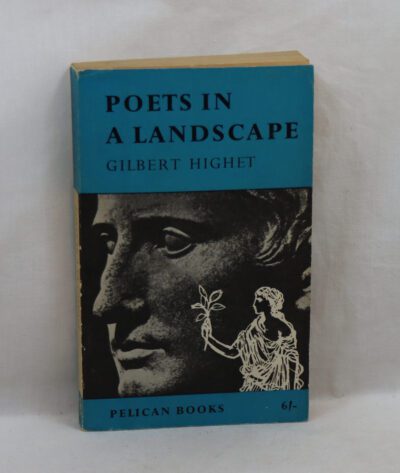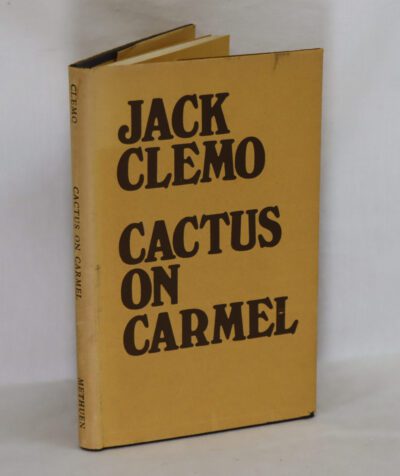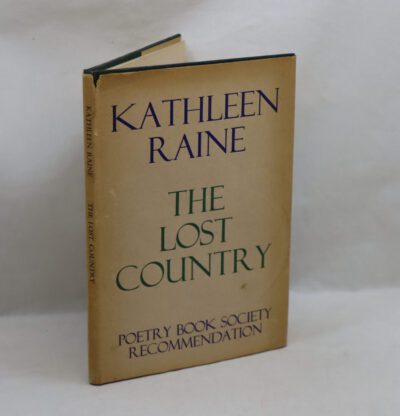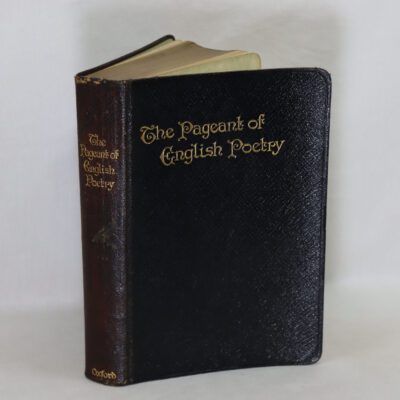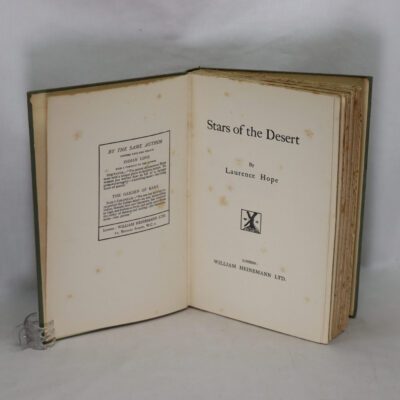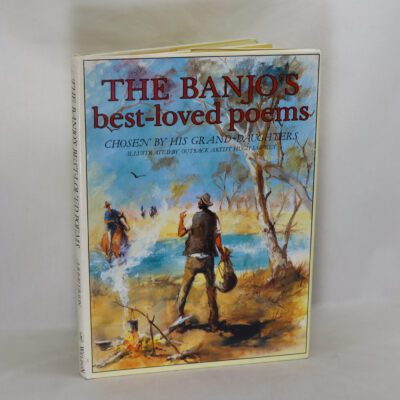Selected Poems & Prose.
By Gerald Manley Hopkins.
ISBN: 9781349233502
Printed: 2012
Publisher: The Folio Society. London
| Dimensions | 21 × 23 × 3.5 cm |
|---|---|
| Language |
Language: English
Size (cminches): 21 x 23 x 3.5
Condition: Fine (See explanation of ratings)
Item information
Description
In a fitted box. Grey cloth binding with gilt title. Trees image on the front board.
F.B.A. provides an in-dept photographic presentation of this item to stimulate your feeling and touch. More traditional book descriptions are immediately available.
This book needs to be put in Art & Natural History, Popular Science Books, Folio & Franklin Library Books, and English Material Books categories
Endorsed by F.B.A. – F.B.A. is endorsing a range of collectable lovingly used boooks
A book to keep and enjoy again and again.
Dazzling in its prosodic innovations, such as the ‘sprung rhythm’ he pioneered, and wide-ranging in its complexity and metaphysical interest. The Penguin Classics edition of Gerard Manley Hopkins’s Poems and Prose is selected and edited with an introduction by W.H. Gardner.
Closer to Dylan Thomas than Matthew Arnold in his ‘creative violence’ and insistence on the sound of poetry, Gerard Manley Hopkins was no staid, conventional Victorian. On entering the Jesuit order the age of twenty-four, he burnt all his poetry and ‘resolved to write no more, as not belonging to my profession, unless by the wishes of my superiors’. The poems, letters and journal entries selected for this edition were written in the following twenty years of his life, and published posthumously in 1918. His verse is wrought from the creative tensions and paradoxes of a poet-priest who wanted to evoke the spiritual essence of nature sensuously, and to communicate this revelation in natural language and speech-rhythms while using condensed, innovative diction and all the skills of poetic artifice.
Gerard Manley Hopkins (1844-89) was born in Essex, the eldest son of a prosperous middle-class family. He was educated at Highgate School and Balliol College, Oxford, where he read Classics and began his lifelong friendship with Robert Bridges. In 1866 he entered the Roman Catholic Church and two years later he became a member of the Society of Jesus. In 1877 he was ordained and was priest in a number of parishes including a slum district in Liverpool. From 1882 to 1884 he taught at Stonyhurst College and in 1884 he became Classics Professor at University College, Dublin. In his lifetime Hopkins was hardly known as a poet, except to one or two friends; his poems were not published until 1918, in a volume edited by Robert Bridges.
If you enjoyed Hopkins’ Poems and Prose, you might like John Clare’s Selected Poems, also available in Penguin Classics.
Reviews
‘Aside from William Shakespeare, I have discovered that I like this poet better than almost any other poet in the English language. He is a Catholic Jesuit priest having a passionate love affair. His writing is as good and perhaps even better than most of the other English writers. Many of his lines are a challenge to clear understanding. When his poems were first posthumously published in 1918 by Hopkins’ friend British Poet Laureate Robert Bridges, nobody including Bridges appreciated their superb qualities. Finally in the 1930’s some critics recognized his genius, and today most critics rate him very highly, while few
persons even remember who Robert Bridges was. Yesterday I re-read Hopkins’ “The Windhover” for the 99th time and again for the 99th time discovered a new aspect in this incredibly rewarding poem. Hopkins uses the beauty found in nature to show the reader the glory of the Creator. By the way, the object of Gerard Manly Hopkins’ passionate love affair was God Himself. Don’t try reading these poems unless you are willing and prepared to research his words and his meanings.’
‘Gerard Manley Hopkins is perhaps best known for three poems, all dealing with nature and the reverence due to God for what he has created. Not that one should expect less from a priest who renounced poetry (by burning almost all of his previous writings) when he entered the Society of Jesus and swore that he would never write again, unless his superiors agreed to it. (It is not difficult to see why Thomas Merton identified with Hopkins so much.) Hopkins was not appreciated in his lifetime since his poetry was published posthumously in 1918, and he has fallen by the wayside today, not readily recognized as a top poet. Yet Hopkins holds a unique place between the Victorian and Modern literary worlds that few others hold. The poems in this volume speak to his unique talent for language and rhythm and the sheer joy he took in delighting in the Lord’s creation of the world around him.
A great number of Hopkins’ poems center around the beauty of nature, with the poet praising God for what he has created. His best-known poems “Pied Beauty”, “Spring and Fall”, and “God’s Grandeur” are testiments to this. Yet Hopkins was not afraid to explore the darker side of his nature, the doubts and fears he experienced even though he was a priest, through a poem like “Carrion Comfort” where the poet can find little to no heavenly solace for his trials and tribulations. Hopkins delighted in creating new words, compound words that compacted lines into neat poetic rhythm and played with the notions those words were meant to represent. He also relied heavily on sound, as evidenced by his reliance on alliteration and stressing words in unusual places. Hopkins’ poems are meant to be read and enjoyed aloud.
Penguin Classics’ “Poems and Prose” of Gerard Manley Hopkins is an excellent collection of the writer’s work. Hopkins’ poems are definitely not easy to read or necessarily to understand, as they can often be full of references to things a modern audience may no longer be familiar with. However, there is something downright magical in his use of rhythm and repetition that make his poems come to life and linger in the reader’s mind long afterwards.’
Gerard Manley Hopkins (1844-89) was born in Essex, the eldest son of a prosperous middle-class family. He was educated at Highgate School and Balliol College, Oxford, where he read Classics and began his lifelong friendship with Robert Bridges. In 1866 he entered the Roman Catholic Church and two years later he became a member of the Society of Jesus. In 1877 he was ordained and was priest in a number of parishes including a slum district in Liverpool. From 1882 to 1884 he taught at Stonyhurst College and in 1884 he became Classics Professor at University College, Dublin. In his lifetime Hopkins was hardly known as a poet, except to one or two friends; his poems were not published until 1918, in a volume edited by Robert Bridges.
Want to know more about this item?

Share this Page with a friend



